ACT Annual Report Summary 2015/16
Part 1: Decision-making in the ACT: Board and committee reports
- ACT Registration and Notification Committee, Dental Board of Australia
- ACT Board of the Medical Board of Australia
- ACT Board of the Nursing and Midwifery Board of Australia
- Pharmacy Board of Australia: Chair’s message
- ACT, Tasmania and Victoria Regional Board of the Psychology Board of Australia
- National Boards and committees: making local decisions
ACT Registration and Notification Committee, Dental Board of Australia: Chair’s message
The ACT committee of the Dental Board of Australia (the National Board) has had a busy year in 2015/16, working to meet the objectives of the National Scheme in managing risk to patients. As ever, our goal is to ensure that the community has access to the best dental care.
With the guidance of the local AHPRA office, over the past year a number of initiatives were introduced to improve the timeliness and efficiency of managing notifications about local dental practitioners. This included more collaborative information gathering and sharing to ensure the right decisions are made when a dental practitioner in the ACT has been the subject of a complaint or concern.
The committee is the local face for the regulation of the dental profession in the ACT. The committee is comprised of practitioner and community members, who work together to make decisions guided by the national standards and policies set by the National Board.
As well as making decisions about the registration and regulation of local dental practitioners, the committee seeks to grow and maintain strong relationships with stakeholders in the region. Over the past year, we have met with the Chair of the local Australian Dental Association (ADA) and also the CEO of ADA NSW.
Members of the committee attended the National Scheme meeting and the Chair also attended a National Board meeting. These meetings were to keep the local committee up to date with knowledge and also the procedures of the National Board.
I thank my colleagues on the committee for their energy and commitment to the people of the ACT over the past year.

Dr Peter Wong,
Chair, ACT Registration and Notification Committee, Dental Board of Australia
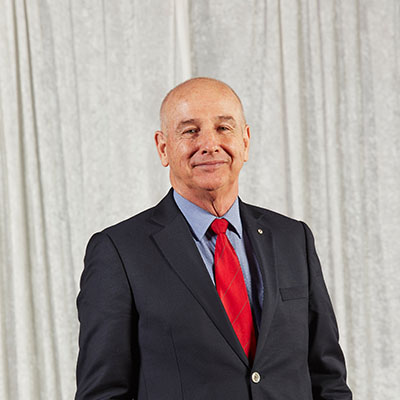
Dr John Lockwood AM,
Chair, Dental Board of Australia
Members of the ACT Committee in 2015/16
- Dr Peter Wong (Chair)
- Ms Tanya Fane
- Dr Donald Malcolmson
- Dr Murray Thomas
ACT Board of the Medical Board of Australia: Chair’s message
In 2015/16, the ACT Board of the Medical Board of Australia (the Board) continued to provide the ACT community with a safe medical environment, where they can be confident that registered health practitioners are qualified and experienced, and practice in a competent, ethical manner.
In collaboration with the ACT AHPRA office, local medical and community members of the Board make decisions about medical registration applications and the resolution of notifications involving practitioners with a principal place of practice in the ACT. These stakeholders bring local knowledge and professional experience to make timely, efficient and transparent decisions.
The Board and the ACT AHPRA office continue to work together to strategically review and assess processes to best serve the ACT community and keep the public safe.
The ACT Board has continued with a triage trial of notifications, which was initiated in 2014/15 to manage complaints and concerns in a timely and efficient manner. We have had constructive input from our Health Complaints Commissioner (HCC), and have improved our processes for matters needing joint consideration.
We also reviewed the implementation of the international medical graduate (IMG) supervision guidelines, which included stakeholder engagement with local general practice consortiums.
Stakeholder engagement continued throughout 2015/16, with Chair meetings with the ACT Minister for Health, the president of the ACT Civil and Administrative Tribunal, representatives of ACT and Federal Departments of Health, the HCC, Health Care Consumers Association, and the Australian Medical Association.
Former Board Chair Associate Professor Stephen Bradshaw retired at the end of the June 2015, after serving the ACT community by working on the ACT Board for 19 years. We thank him for his committed professional contribution to medical regulation in our jurisdiction. We also thank Dr Barbara (Sally) Somi, who also retired after many years of working on the Board. They will be missed. We welcome new members Dr Emma Adams and Dr Janelle Hamilton, and returning members Dr Tobias Angstmann and Ms Vicki Brown.
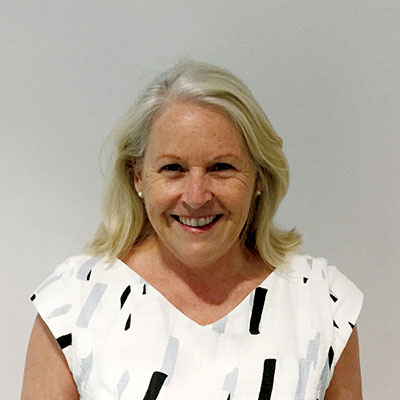
Dr Kerrie Bradbury,
Chair, ACT Board of the Medical Board of Australia

Dr Joanna Flynn AM,
Chair, Medical Board of Australia
Members of the ACT Board in 2015/16
- Dr Kerrie Bradbury (Chair)
- Associate Professor Stephen Bradshaw (Chair) (until 30 August 2015)
- Dr Emma Adams (from 1 July 2016) Dr Tobias Angstmann
- Dr Bryan Ashman
- Ms Vicki Brown
- Dr Janelle Hamilton (from 1 July 2016) Mr Robert Little
- Mr Donald Malcolmson
- Dr Barbara Somi (until 30 June 2016) Professor Peter Warfe
ACT Board of the Nursing and Midwifery Board of Australia: Chair’s message
In 2015/16, the ACT Board of the Nursing and Midwifery Board of Australia (the Board) upheld our legislative responsibilities to protect the public by regulating local registrants of the nursing and midwifery professions.
We are a local board comprised of local members, and the decision maker for registration and notification matters in the ACT. These may be decisions about complex applications for registration that require detailed individual assessment, or deciding what action is required to manage the risk to patients as a result of a notification about a nurse or midwife.
The decisions we make in the ACT are guided by the national standards, regulatory guidelines and policies set by the National Board and are supported by the ACT AHPRA office.
During the year, the ACT Board has worked closely with our colleagues on the National Board and other state and territory boards to share learnings and ensure consistent decision-making under the National Law.
In response to the release of the findings of the independent review of the National Scheme in late 2015, AHPRA and the National Boards have continued to improve notifications management and the timeliness of decision-making. One of the steps the ACT Board took to improve processes was to revise its meeting schedule and merge the notifications and registration committee meetings.
The ACT Board has explored options for professional development throughout the year and considered inviting relevant stakeholders to monthly meetings, and continued to engage with, and provide feedback to, the National Board as required.
We welcomed two new ACT Board members in 2015/16: Ms Tina Calisto, who is an Enrolled Nurse and practitioner member, and Ms Alison Archer, community member, and Dr Carmel McQuellin was reappointed to the Board.
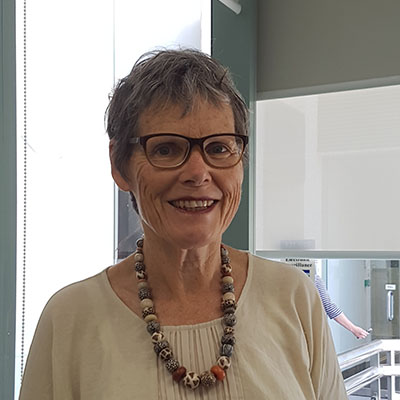
Ms Emma Baldock
Chair, ACT Board of the Nursing and Midwifery Board
of Australia

Associate Professor Lynette Cusack
Chair, Nursing and Midwifery Board of Australia
I would like to thank the ACT Board members and our colleagues for their hard work during the year. Thank you also to outgoing members Ms Jane Ferry, community member, and Ms Natalie Robinson, health practitioner member, for their service to the Board and the ACT community.
Members of the ACT Board in 2015/16
- Ms Emma Baldock (Chair)
- Mrs Alison Archer (from 1 January 2016)
- Ms Tina Calisto (from 1 January 2016)
- Ms Alison Chandra
- Ms Felicity Dalzell
- Ms Kate Gauthier
- Ms Eileen Jerga AM
- Dr Carmel McQuellin (from 1 January 2016)
- Ms Alison Reardon
Pharmacy Board of Australia: Chair’s message
The Pharmacy Board of Australia (the National Board) makes decisions about all registered pharmacists in the ACT. Regulation of pharmacists at a state and territory level is guided by the standards and policies set by the National Board.
Practitioner representation from each of the states and territories on the National Board helps to ensure consistency and transparency in the Board’s work to implement the National Scheme at a local level. This is supported by a public perspective, which comes from community member representatives from four states. As well as being the Chair of the National Board, I am also the ACT practitioner member.
To ensure local knowledge informs nationally consistent decisions, the National Board has a notifications committee to make decisions about individual registered pharmacists in the ACT. In addition to five core members from the National Board, there are two representatives from each state and territory on this committee.
The ACT representatives (jurisdictional members) on the notifications committee are:
- Ms Susan Alexander, and
- Ms Jennifer Bergin.
Input throughout the year from stakeholders in the ACT has been important in helping the Board to complete significant work.
The National Board consulted widely before publishing revised registration standards on:
- professional indemnity insurance arrangements
- continuing professional development and related guidelines
- recency of practice
- supervised practice arrangements, and
- examinations for eligibility for general registration.
Feedback received after the publication of the Board’s Guidelines on compounding of medicines resulted in a further period of consultation with stakeholders in relation to the expiry of compounded parenteral medicines. The Board continues to work closely with technical experts, the Therapeutic Goods Administration and other stakeholders to finalise this guidance.
The National Board also worked with an external service provider to create a revised training program for oral examiners. This drew on the skills and expertise of local pharmacists who support the Board through their participation as examiners for the national pharmacy examination.
Information for students and interns published on the National Board’s website was reviewed and updated. New resources were also created, including PowerPoint presentations that explain the Board’s requirements and can be used by local education providers.
Data showing the work of the National Board in the ACT are detailed in this report. More comprehensive information about the work of the Board nationally is included in the 2015/16 annual report of AHPRA and the National Boards.
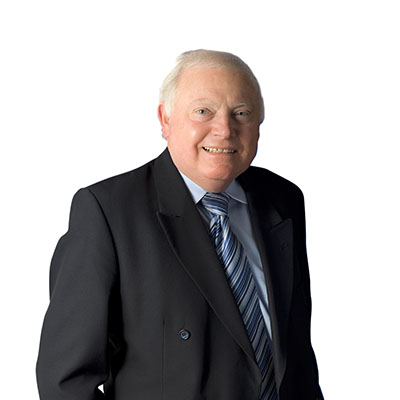
Mr William Kelly
Chair, Pharmacy Board of Australia
ACT, Tasmania and Victoria Regional Board of the Psychology Board of Australia: Chair’s message
The Regional Board of the Psychology Board of Australia (the Board) serves communities in the Tasmania, Victoria and the ACT. We are the local face of the psychology profession.
The decisions we make about psychologists in our region are guided by the national standards and policies set by the Psychology Board of Australia. The Regional Board is supported by AHPRA’s office in Victoria, with assistance from teams in Tasmania and the ACT.
The main focus of the Regional Board has continued to be on public safety as we make decisions about the registration and regulation of individual psychologists. Most of our work in 2015/16 considered what action we needed to take to manage risk to the public as a result of a notification (complaint). Another priority was to assess complex applications for registration, particularly those who have been registered overseas.
We endeavoured to engage with our stakeholders as much as possible during the year, including an annual visit to Hobart to meet with registrants in Tasmania. The meeting was well attended with practitioners present from the local area and a separate group dialling in via Skype from Launceston. The Board’s yearly practitioner forums in the ACT and Tasmania are an important way to maintain and grow collegiate connections with staff in each office. They also provide an opportunity to discuss information relevant to local practitioners, and for practitioners to engage with the Board on local matters of relevance or concern.
This year, we welcomed Professor Anthony Love to the Regional Board.
I would like to thank all members of the Regional Board for their continued hard work and for their commitment to protecting the public by ensuring that psychologists in our region are suitably qualified and uphold the standards that are expected of the profession.
The work of the Psychology Board of Australia will be released in a profession-specific annual report summary, due to be released in late February 2017. For a more complete picture of AHPRA and the National Boards’ work on a national level in 2015/16, visit the 2015/16 annual report of AHPRA and the National Boards.
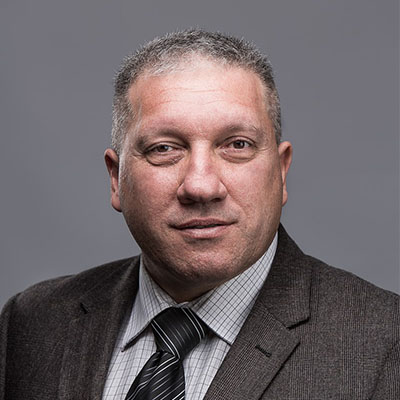
Dr Cristian Torres
Chair, Regional Board of the Psychology Board of Australia

Professor Brin Grenyer
Chair, Psychology Board of Australia
Members of the Regional Board in 2015/16
- Dr Cristian Torres (Chair)
- Mr Simon Kinsella (Deputy Chair)
- Mr Robin Brown
- Dr Melissa Casey
- Ms Anne Horner
- Associate Professor Terry Laidler
- Professor Anthony Love (from 1 June 2016) Dr Patricia Mehegan
- Ms Maree Riley
- Associate Professor Kathryn Von Treuer (until 30 August 2015)
National Boards and committees: making local decisions
The remaining nine National Boards in the National Scheme have taken a different approach to decision-making about local practitioners, with national committees comprising state and territory representatives.
The committees were established to manage the risk profile, complexity and size of their professions. See the ‘Meet the Chairs’ panel below to find out which National Boards have national committees that oversee decision-making on a local level.
The committees are appointed by the National Boards on merit and include Board members in most cases. Additional members may be appointed to bring specific professional or jurisdictional expertise when needed. Committees are overseen by the National Boards, who support consistent and robust decision-making to keep the public safe.
Using national committees is an important way to cut the cost of regulation for these professions, while maintaining the benefits of scale and public protection provided by the National Scheme. National Boards also work closely with our network of AHPRA state and territory managers, so they can monitor and respond to any jurisdiction-specific issues for their professions.
Throughout 2015/16, National Boards engaged with local stakeholders in a range of ways, including:
- holding stakeholder forums in states and territories to meet local practitioners and community members, and to discuss important issues for health practitioner regulation
- responding to invitations to address professional and employer organisations, education providers and other interested groups
- participating in joint, cross-board consultations about common registration standards, codes, guidelines and policies, and
- sharing advice and feedback from the National Scheme Community Reference Group and Professions Reference Group.
For more information about the work of National Boards during the year, read the 2015/16 annual report of AHPRA and the National Boards.
Meet the Chairs

Ms Lisa Penrith
Presiding Member, Aboriginal and Torres Strait Islander Health Practice Board of Australia

Professor Charlie Xue
Chair, Chinese Medicine Board of Australia
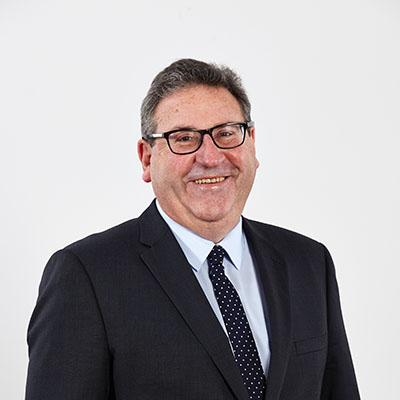
Dr Wayne Minter AM
Chair, Chiropractic Board of Australia

Mr Neil Hicks
Chair, Medical Radiation Practice Board of Australia
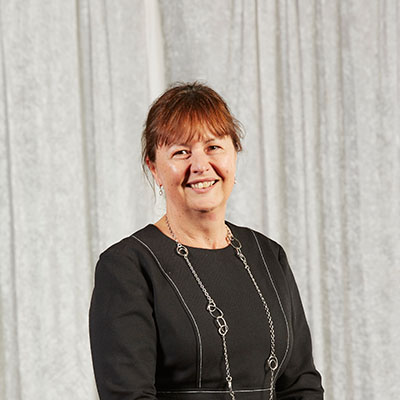
Ms Julie Brayshaw
Chair, Occupational Therapy Board of Australia

Mr Ian Bluntish
Chair, Optometry Board of Australia

Dr Nikole Grbin
Chair, Osteopathy Board of Australia

Dr Charles Flynn
Presiding Member, Physiotherapy Board of Australia
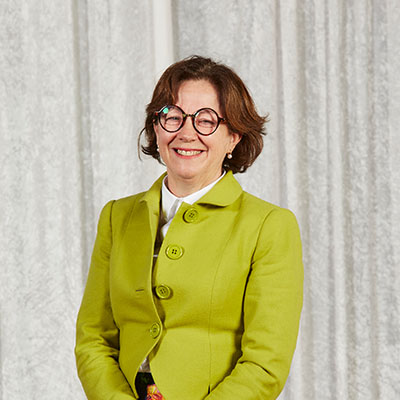
Ms Catherine Loughry
Chair, Podiatry Board of Australia